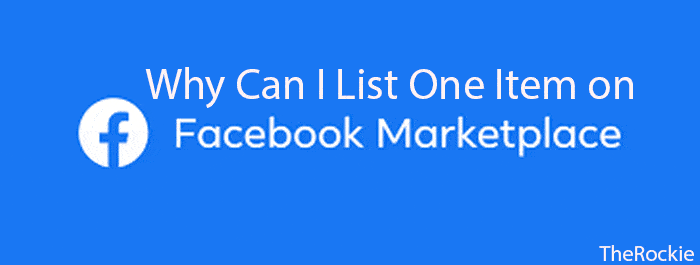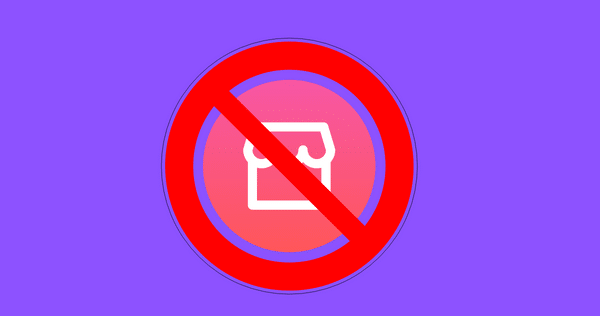Does Facebook Marketplace Charge Fees and How to Avoid it?

Like any other online marketplace, it is essential to understand the fees associated with using Facebook Marketplace and how to avoid them.
In this comprehensive guide, we will explore the various fees charged by Facebook Marketplace and how you can minimize them.
Facebook Marketplace charges a selling fee of 5% per shipment or a flat fee of $0.40 for products priced at $8.00 or below.
There is not a clearly defined way to avoid Marketplace fees but to keep your money safe, check out the buyer’s profile, avoid transactions not involving local buyers, guard personal details, and meet the other party in a public place.
DID YOU KNOW: HOW TO SELL FURNITURE ON FACEBOOK MARKETPLACE
What are Different Facebook Marketplace Fees?
1. Selling Fees:
When using Facebook Marketplace as a registered seller or a merchant, you will be subject to selling fees. These fees are automatically deducted from your payout after each successful sale.
Facebook Marketplace charges a selling fee of 5% per shipment or a flat fee of $0.40 for products priced at $8.00 or below. The selling fee covers taxes, and payment processing costs, and contributes to the ongoing development of Facebook’s buying and selling programs.
It is important to factor in these selling fees when determining the selling price of your products. By understanding the fee structure, you can effectively price your products to ensure profitability while remaining competitive in the marketplace.
2. Chargeback Fees (Refund):
In some cases, buyers may file chargebacks, requesting a refund for their purchase. When a chargeback is initiated, Facebook Marketplace holds the transaction amount, including the chargeback fees, until the dispute is resolved.
Chargeback fees can vary depending on the circumstances and may result in additional costs for sellers. To avoid chargebacks, it is crucial to provide accurate product descriptions, prompt customer support, and secure transactions.
3. Insertion Fees and Subscription Fees:
Unlike many other online marketplaces, Facebook Marketplace does not charge insertion fees or require subscriptions for individual sellers.
This unique feature allows sellers to list unlimited products without incurring additional costs.
4. Shipping Fees
Facebook Marketplace does not directly charge shipping fees. However, sellers may incur costs for prepaid shipping labels if they choose to use them.
The exact shipping costs depend on various factors, including weight, dimensions, destination, and carrier agreements. It is essential to consider shipping costs when determining the overall profitability of your products.
ALSO READ: HOW TO TURN OFF SHIPPING ON FACEBOOK MARKETPLACE WHEN SELLING
How to Calculate Facebook Marketplace Fees?
Facebook Marketplace imposes a transaction fee of 5% on any item sold for more than $8. For items priced below $8, a flat fee of $0.40 is charged.
>> In countries outside the United States, such as Canada, the fee structure remains the same, with a 5% fee applied to items sold above C$8, and a flat fee of C$0.40 for items priced below C$8.
How to Avoid Facebook Marketplace Fees?
There is not a clearly defined way to avoid Marketplace fees but to keep your money safe you can follow the given guidelines. Also, these guidelines are effective to minimize the chances of chargeback/refund fees.
1. Prompt and Responsive Customer Support
Responsive customer support is crucial in preventing misunderstandings and resolving issues quickly. Address buyer inquiries and concerns promptly to ensure a positive buying experience.
By providing excellent customer service, you can build trust with buyers and minimize the chances of chargebacks or negative feedback.
2. Secure Transactions and Verified Buyers
To avoid fraudulent transactions and potential chargebacks, implement secure payment methods and verify buyer information.
Use reliable payment processors and consider requiring buyer verification for high-value transactions. By prioritizing security measures, you can protect yourself and your customers from potential scams.
3. Local Transactions and In-Person Exchanges
Facebook Marketplace is primarily designed for local transactions. Whenever possible, prioritize selling to buyers in your local community.
This reduces the need for shipping and associated costs, making transactions more convenient and cost-effective for both parties.
Additionally, consider arranging in-person exchanges in public places to ensure safe and secure transactions.
4. Optimize Pricing and Profit Margins
Carefully analyze your product pricing to factor in the selling fees and shipping costs. Consider adjusting your profit margins to ensure profitability while remaining competitive in the marketplace.
SIMILAR TO THIS: WHY CAN’T YOU OFFER SHIPPING ON FACEBOOK MARKETPLACE






